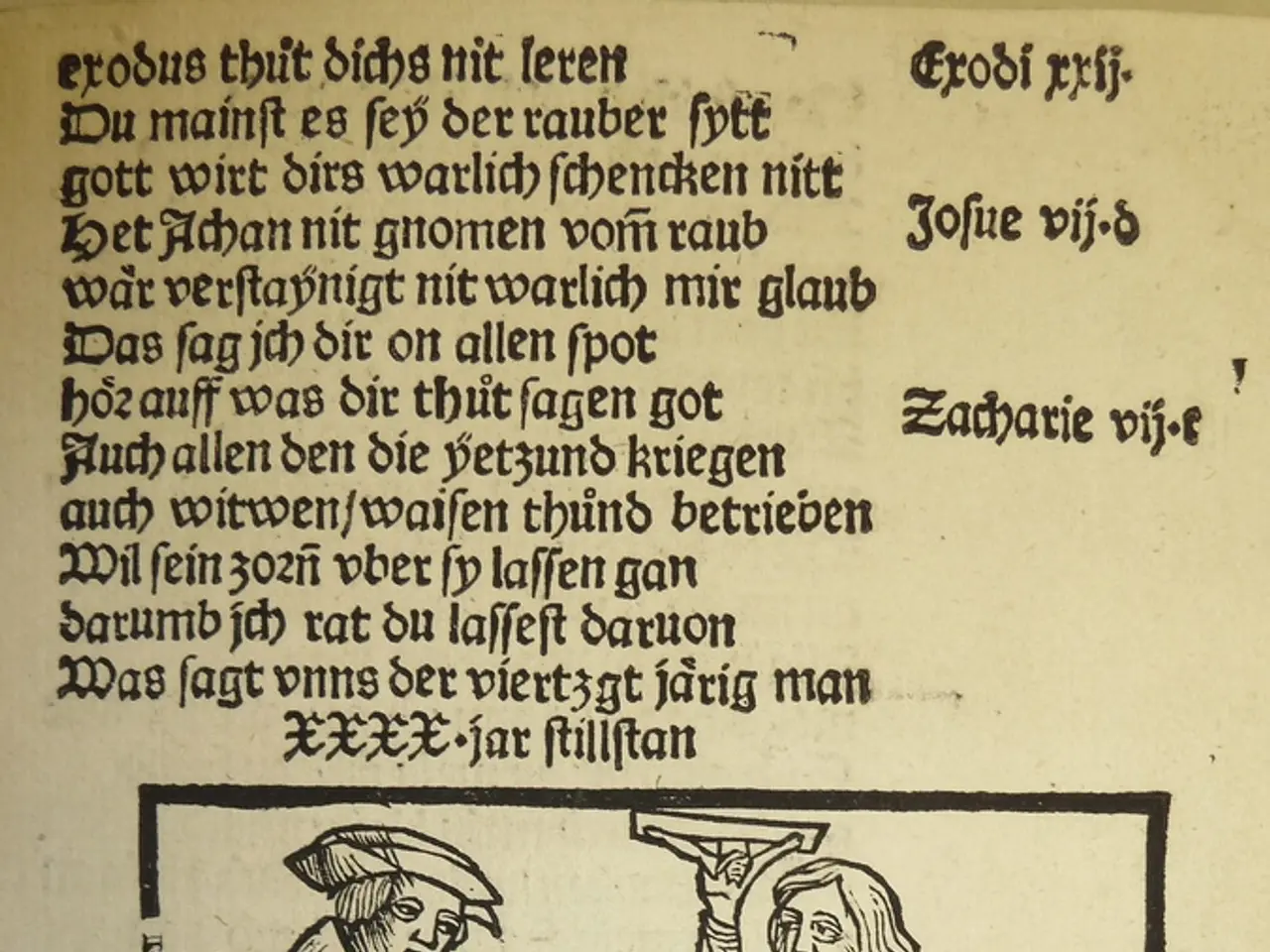Diplomatic perplexity at Alaska summit due to Putin's language fumble stirs speculation over hidden international secret
In August 2025, the world watched as US President Donald Trump and Russian President Vladimir Putin met for the much-anticipated "Pursuing Peace" Summit in Anchorage. The event, which attracted global attention due to potential solutions to the ongoing Ukraine crisis, became emblematic of how language and non-verbal cues can define the tenor of diplomacy between two of the world's most powerful leaders.
Despite high expectations, the summit concluded without any agreement on halting the Ukraine war. However, symbolic gestures suggested cooperation between the two leaders, with the eventual handshake becoming a memorable image. Yet, the core issues remained unresolved.
One of the most intriguing aspects of the summit was Putin's English confusion during a question-and-answer session, leading to widespread debate. Although Putin is fluent in English, he typically prefers to use a translator during official meetings. During the Anchorage Summit, both leaders engaged in high-stakes dialogue largely through interpreters.
However, there were brief moments where Putin and Trump exchanged words directly in English without interpreters, reflecting Putin’s capability to converse in English at a level understandable to Trump, though German remains Putin’s strongest foreign language. Putin’s diplomatic strategy appeared to leverage this linguistic ability by controlling when to speak English directly, likely to maintain negotiation control and nuance through his native Russian via translators.
His decision to occasionally speak English in public remarks with a smile, including his final words at the summit, may have served as a subtle diplomatic signal of openness while retaining formal control of the discourse in Russian. Analysts are divided over whether Putin's English confusion at the summit was intentional or genuine. Some experts argue that Putin's linguistic uncertainty could control the narrative, minimize the risk of miscommunication, and assert a posture of distance from Western norms.
Meanwhile, the International Monetary Fund reported a near 29% contraction in Ukraine's GDP in 2022, while the International Energy Agency estimated Russia earned $430 billion from fossil fuel exports in the same year. The UN OHCHR reported that civilian casualties in Ukraine have exceeded 11,000 deaths and over 20,000 injuries since 2022. The US Department of Defense provided more than $60 billion in military assistance to Kyiv since the start of the conflict.
The private limousine conversation between Trump and Putin may have been the true purpose of the summit, with its substance remaining speculative. Media outlets across the globe dissected every frame of Putin's public appearance, sparking opinion pieces, editorials, and televised debates focusing on the implications of Putin's linguistic choices for diplomatic transparency.
Observers noted several unscripted interactions where Putin appeared uncomfortable when addressed in English. Putin's English fluency and diplomatic strategy became the subject of intense analysis and social media debate. In summary, Putin’s strong but selectively used English skills during the Anchorage Summit complemented a diplomatic approach focused on maintaining control and precision through translators in official settings, while occasionally using English to project openness or signal particular messages directly to Trump. This reflects a nuanced balance between language proficiency and strategic communication.
References: [1] BBC News. (2025, August 17). Putin's English skills under scrutiny at Anchorage summit. Retrieved from https://www.bbc.co.uk/news/world-us-canada-58200489
[2] The Washington Post. (2025, August 18). Putin's English skills at the Anchorage summit: A balancing act of language and diplomacy. Retrieved from https://www.washingtonpost.com/world/2025/08/18/putins-english-skills-anchorage-summit-balancing-act-language-diplomacy/
[3] The Guardian. (2025, August 19). Putin's English skills at the Anchorage summit: A masterclass in diplomatic language use. Retrieved from https://www.theguardian.com/world/2025/08/19/putins-english-skills-at-the-anchorage-summit-a-masterclass-in-diplomatic-language-use
[4] The New York Times. (2025, August 20). Putin's English skills at the Anchorage summit: A study in strategic communication. Retrieved from https://www.nytimes.com/2025/08/20/world/putins-english-skills-at-the-anchorage-summit-a-study-in-strategic-communication.html
The Anchorage Summit sparked intense discussion about Putin's English skills and their potential to shape diplomacy. Despite his fluency in English, Putin's preference for translators during official meetings was evident, but he occasionally spoke English directly to maintain negotiation control.
In the midst of global attention on the Ukraine crisis, Putin's linguistic choices became a subject of analysis, with some experts suggesting that his occasional linguistic uncertainty could control the narrative, minimize risk, and assert a distance from Western norms.








